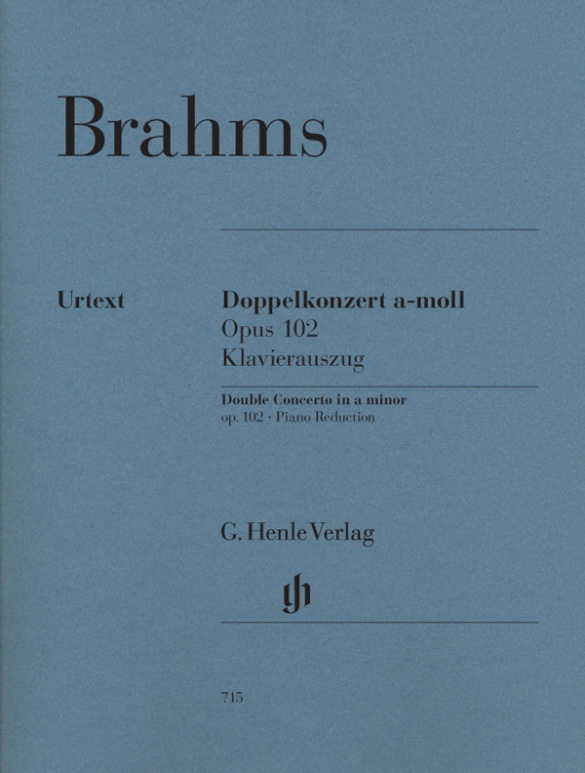

Johannes Brahms
Double concerto la mineur op. 102
Le violoncelliste Robert Hausmann avait souhaité que Brahms lui écrive un concerto pour violoncelle et orchestre. Ce dernier lui adjoindra toutefois dans son «Double Concerto» un violon. Cette oeuvre inhabituelle est depuis quelques années disponible dans la nouvelle édition complète des oeuvres de Brahms. S’appuyant sur la réduction originale pour piano de Brahms, Johannes Umbreit a réalisé une nouvelle réduction tout à fait jouable, et qui retranscrit au mieux le coloris de la partition d’orchestre. L’aménagement des parties de violon et de violoncelle est l’oeuvre des deux solistes renommés, Frank Peter Zimmermann et Heinrich Schiff. Le matériel d’orchestre se basant sur l’édition complète est disponible chez Breitkopf & Härtel (PB/OB 16104).
CONTENU/DÉTAILS
CONCERNANT LE COMPOSITEUR

Johannes Brahms
Son œuvre considérable comprend de la musique de chambre, des œuvres pour piano, de nombreuses compositions pour chœur et des lieder (parmi lesquels des compositions sur des textes de chants populaires) ainsi que les grandes pages orchestrales des années 1870 et 80. Ses compositions sont marquées par le procédé de la variation à développement. Il passe à la fois pour avoir été aux antipodes de la Nouvelle École allemande animée par Liszt et le représentant de la «musique absolue».
| 1833 | Né le 7 mai à Hambourg en tant que fils d’un musicien. À l’âge de 7 ans il prend ses premières leçons de piano chez Willibald Cossel, puis chez Eduard Marxen. Premières auditions publiques à partir de 1843. |
| 1853 | Lors d’une tournée de concerts dans les villes allemandes, il fait la connaissance de Schumann qui, dans son article «Neue Bahnen» (Nouvelles voies) l’annonce comme le grand compositeur à venir. Il noue avec Clara Schumann une profonde amitié qui tiendra toute sa vie. |
| 1854–57 | 1er Concerto pour piano en Ré mineur op. 15. |
| 1857–59 | Chef de chœur, pianiste et enseignant à la cour princière de Detmold. |
| 1859–61 | Direction du chœur de femmes de Hambourg. |
| 1860 | Manifeste contre les «Nouveaux Allemands» autour de Liszt. |
| 1863 | Cantate «Rinaldo» op. 50. |
| 1863 | Directeur de l’Académie de chant de Vienne. |
| 1868 | Exécution partielle du «Requiem allemand» op. 45 à Vienne (création de l’œuvre intégrale en 1869 à Leipzig). |
| 1871–74 | Directeur artistique de la Société des Amis de la Musique à Vienne. |
| 1873 | Variations sur un thème de Haydn op. 56a pour orchestre. |
| à partir de 1877 | Son œuvre symphonique débute par la 1re Symphonie en Ut mineur op. 68 (commencée en 1862), composition de la 2e Symphonie en Ré majeur op. 73 (1877), 3e Symphonie en Fa majeur op. 90 (1883), 4e Symphonie en Mi mineur op. 98 (1884-1885): thèmes expressifs, style de type musique de chambre. |
| à partir de 1878 | Voyages en Italie. |
| 1878 | Concerto pour violon en Ré majeur op. 77 pour Joseph Joachim. |
| 1881 | 2e Concerto pour piano en Si bémol majeur op. 83 avec Scherzo. |
| 1886 | Président d’honneur du Tonkünstlerverein de Vienne. |
| 1897 | Vier ernste Gesänge (Quatre chants sérieux) op. 121. Meurt le 3 avril à Vienne. |
About the Authors
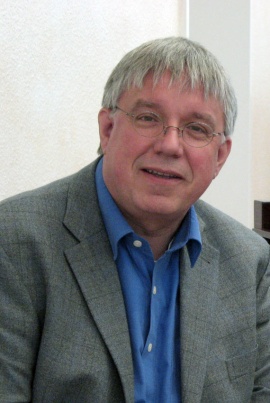
Michael Struck (Editeur)
Dr. Michael Struck, born in 1952 in Hannover, studied school music, private music teaching, piano (diploma, class of Werner Schröter), musicology (Constantin Floros) and pedagogy at the music conservatory in Hamburg and at Hamburg University. In 1984 he completed his doctorate with a thesis on Schumann’s controversial late instrumental works.
He is a research associate at the research centre the new “Johannes Brahms Complete Edition” at Kiel University (member of the editorial board), as well as editor and supervisor of numerous volumes. He is the author of many musicological publications on music of the 18th to 20th centuries and other work editions. Struck is also a music critic. As a pianist he has given concerts with the vocal ensemble of Kiel University as well as with the Wiesbaden Chamber Choir and has given concert lectures (in 1989, 1997, 2001, 2005 as part of the matinees on “Raritäten der Klaviermusik” in Husum). In 2009 he was awarded the Schumann Prize of the City of Zwickau, in 2010 as a scholar at the Brahms Research Centre at the Musikwissenschaftliches Institut of Kiel University he was a co-prizewinner of the Brahms Prize 2010, conferred by the Brahms-Gesellschaft Schleswig-Holstein.
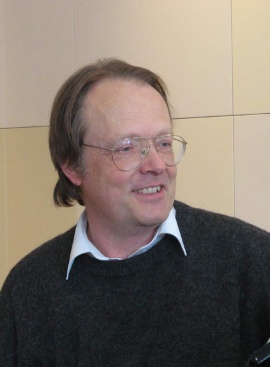
Johannes Umbreit (Réduction pour piano)
Prof. Johannes Umbreit studied the piano at the Musikhochschule in Munich. From 1987 onwards he was a regular accompanist at courses given by Wolfgang Schneiderhan, Thomas Brandis, Ljerko Spiller, Igor Ozim, Olga Woitowa, Ernő Sebestyén, Walter Nothas, F. Andrejevsky, Denis Zsigmondy and Zakhar Bron amongst others. He has appeared in numerous radio and TV broadcasts and plays chamber music with members of the Bavarian State Orchestra, the Munich Philharmonic Orchestra and the Bavarian Radio Symphony Orchestra.
He is on the jury of different international competitions and has been invited to several international music festivals. Umbreit was a teacher for almost ten years at the Musikhochschule in Munich and at the same time a lecturer for chamber music and piano accompaniment at the Richard Strauss Conservatory. Since 2008 he has been a lecturer at the Hochschule für Musik und Theater München. As the long-serving managing director of the Richard-Strauss-Gesellschaft, he was made an honorary member of the board in 2009. In May 2011, the Bavarian Minister of Culture appointed Johannes Umbreit an honorary professor of the Hochschule für Musik und Theater München on the suggestion of its academic senate.
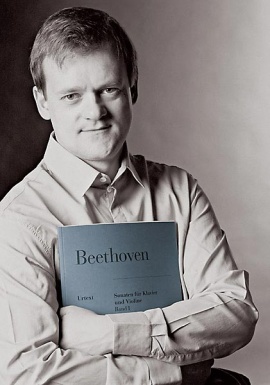
Frank Peter Zimmermann (Doigtés violon)
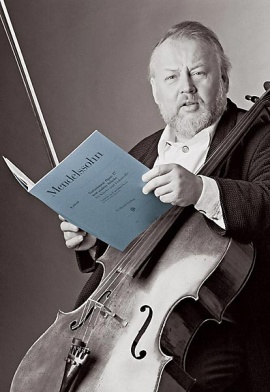
Heinrich Schiff (Doigtés violoncelle)
Informations sur la sécurité du produit

G. Henle Verlag
Vous trouverez ici des informations sur le fabricant du produit.G. Henle Verlag e.K.
Forstenrieder Allee 122
81476 München
Allemagne
info@henle.de
www.henle.com
recommandations
autogenerated_cross_selling
Autres éditions de ce titre


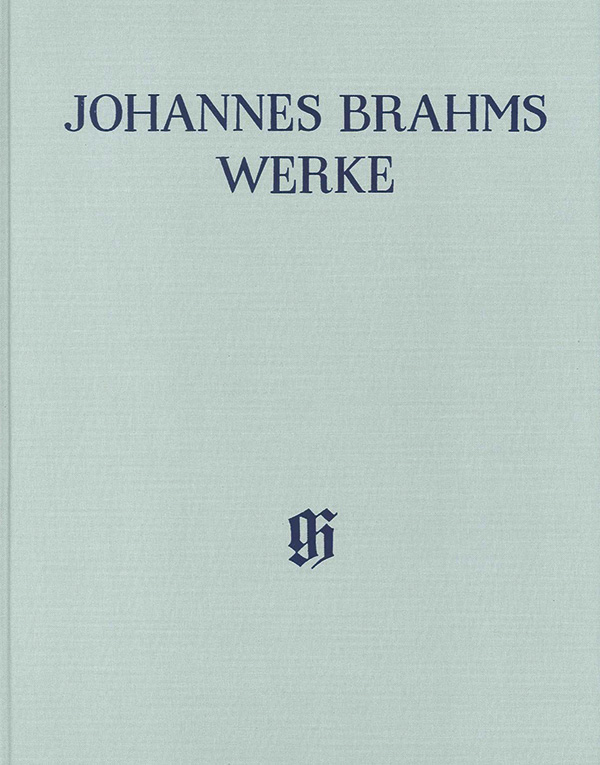
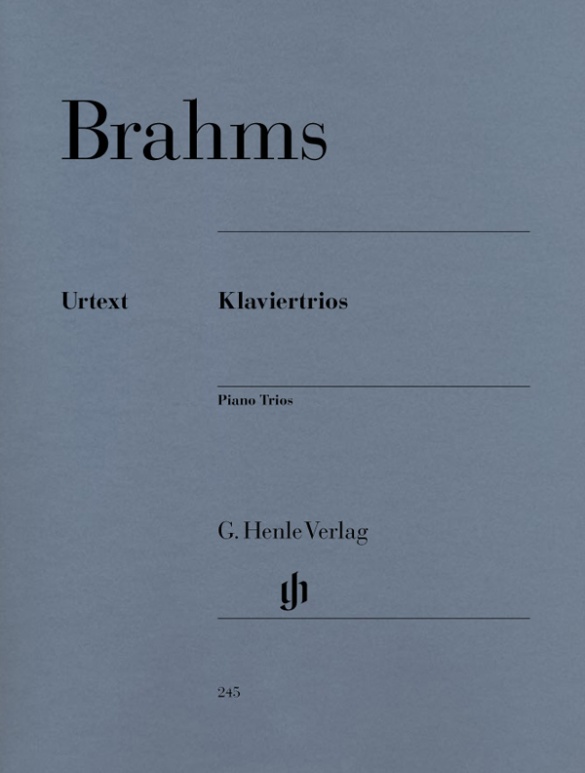
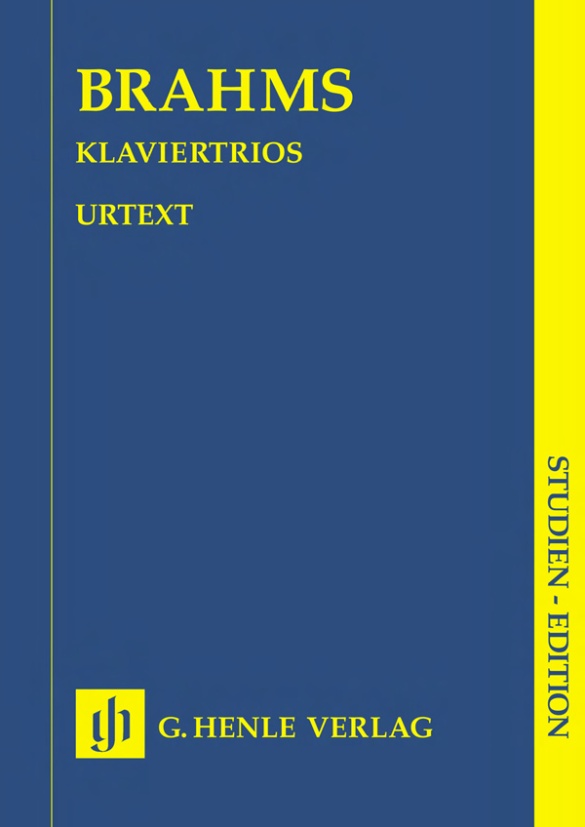

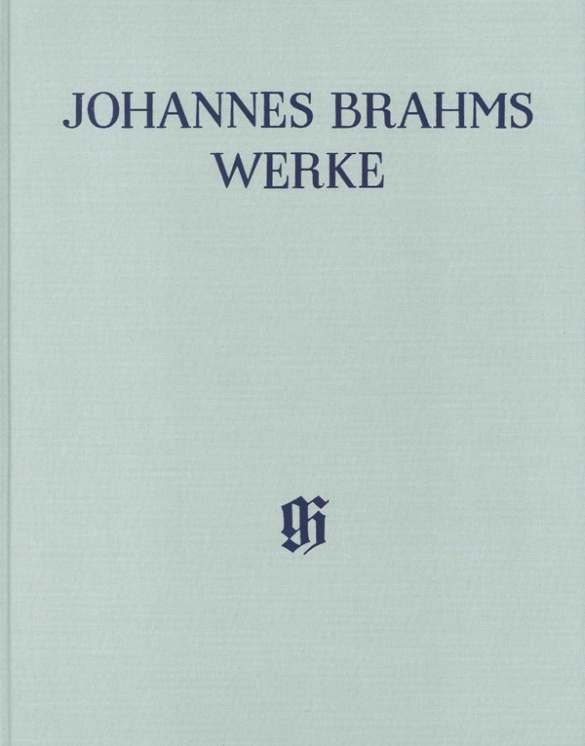
partie de corde avec ou sans indications de doigté
Matériel d'orchestre chez Breitkopf & Härtel